Obituaries
A scroll through these entries illustrates the tremendous achievements that physiologists have achieved over many generations. Their valuable contributions to the discipline benefit us all.
This page provides brief notices on the deaths of Society Members as soon as we hear about them. Full PDF obituaries are presented where available.
J M Adam
2013
The Society regrets to announce the death Colonel J M Adam OBE OStJ FRCP who was elected a Member in 1960.
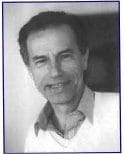
Takis Anagnostopolous
( 1936 - 2000 )
Takis Anagnostopoulos was a renal physiologist, with special interests in ion transport in the nephron. After medical studies in Paris and training in the US, he created the first French laboratory of renal electrophysiology. He developed this during the 1980s within the INSERM Unit at the Necker Hospital for Sick Children. Doctor of Medicine and Docteur des Sciences, he taught in three Paris universities and was an early advocate for the modernisation of medical and biological curricula.

Declan John Anderson
d.2016
The Society is saddened to hear of the death of Declan Anderson, Emeritus Professor of Oral Biology at Bristol. Declan Anderson was a dentist and physiologist; but foremost, a scientist. He died at the age of 95 on Easter Day, 27 March 2016. He was educated at Christ’s Hospital School and Guy’s Hospital. After graduating in dentistry in 1942, he went on to obtain a B.Sc. in Physiology in 1946, and a Ph. D. in 1955. During these latter studies, he held clinical posts and a lectureship in Physiology at Guy’s. A full obituary will be appear in Physiology News 103.

Roger Anwyl
d.2019
The Society regrets to hear of the death of Roger Anwyl on 21 May 2019 after a long illness. A graduate of the University of Birmingham (BSc in 1969 and PhD in 1972) Roger worked with Peter Usherwood at the University of Glasgow and Toshio Narahashi in Chicago before taking up a lectureship in 1978 at Trinity College Dublin where he subsequently became Professor of Neurophysiology and then Fellow Emeritus on his retirement. A Member of The Society from 1979, his research centred on mechanisms of glutamatergic transmission, including the roles of metabotropic glutamate receptors, in hippocampal synaptic plasticity.

David Armstrong
The Society regrets to hear of the death of David Armstrong, emeritus Professor of Physiology at the University of Bristol, after a long illness following a stroke. David was internationally recognised for his work on how the brain controls goal-directed movement, using a combination of anatomical, physiological and behavioural methods. Completing a PhD in Canberra with John Eccles, he moved to Bristol where he became head of Physiology in 1990. A Society member from 1969, he was an editor of The Journal of Physiology between 1979 and 1986. After retirement, David took up a second career in the Orkneys of ornithological photography.

Philippe Ascher
(1936 – 2022)
The Society was sad to hear of the death of French neuroscientist Philippe Ascher who died in October 2022 at the age of 86. Known as a giant of neuroscience, he will be greatly missed by the community.
Ascher studied biology at École Normale Supérieure (ENS) in Paris, France before completing his PhD thesis under the guidance of Pierre Buser, performing electrophysiological recordings in cats. He then expanded his interests to ionic and cellular mechanisms, which led to his research on the action of neurotransmitters at Institut Marey, Paris, France. He focused on the nervous system of the sea mollusc Aplysia, investigating the inhibitory and excitatory effects of dopamine and the rapid excitatory actions of acetylcholine. During this period he met his future wife JacSue Kehoe as well as his life-long friend Hersch (Coco) Gerschenfeld. The trio collaborated throughout Ascher’s career.
Ascher was influential in the study of mammalian neurons. He advanced knowledge of glutamate receptors, his research dedicated on a type known as N-methyl-D-aspartate receptors (NMDA) which are found in the neurons. Two of his key findings include the discovery of the role magnesium ions play in the functioning of these NMDA glutamate receptors with Linda Nowak in 1984. A few years later, Ascher and Jon Johnson discovered the modulating role of glycine in gating NMDA receptor channels. Ascher went onto study the role of NMDA receptors in the plasticity of cerebellar synapses.
In 1971 at ENS, Ascher founded the Neurobiology Laboratory, where he was director until 2001. In 1992, he became head of the Biology Department at ENS, a position he held until 1999. During this decade he also won the Richard Lounsbery Award jointly with Henri Korn for their discoveries of the mechanisms of synaptic transmission.
In 2003 he joined Professor Alain Marty working at the Laboratory of Cerebral Physiology at the University of Paris-Descartes, France. Ascher was later named Professor Emeritus at Saint-Pères Paris Institute for Neurosciences, France in 2019, a position he held until his death.
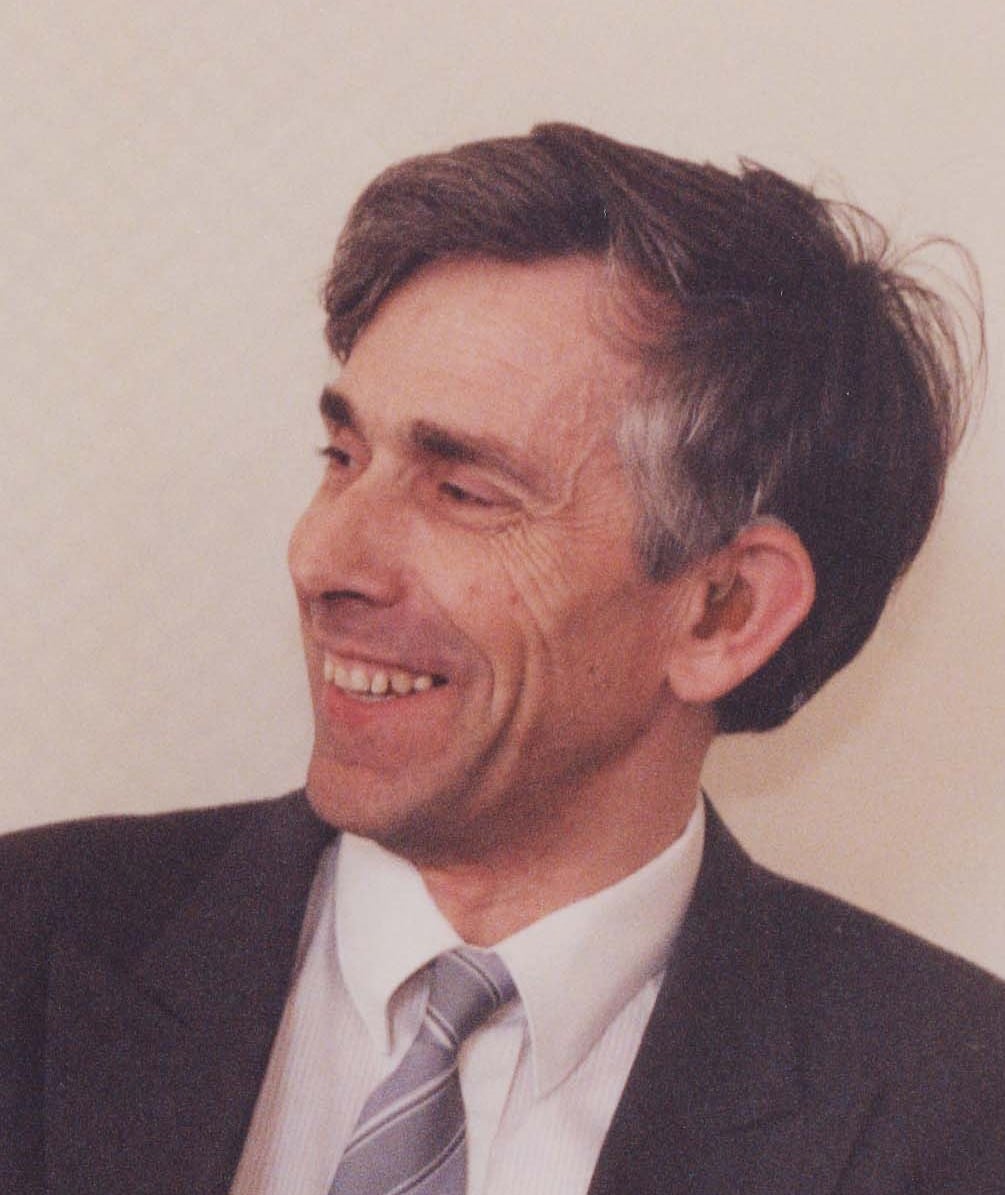
Graham Francis Baker
( 1947 - 2004 )
Graham Baker graduated in physiology in 1969, gained a PhD and was appointed lecturer at Bedford College in 1981. Throughout his career he worked predominantly on transport systems, most notably in human erythrocytes (with Wilfred Widdas) using self-built equipment. He discovered the asymmetric action of 4,6 O-ethylidene-D-glucose in inhibiting glucose transport, investigated the effect of ATP on phloretin activity (with Martha Kaloyianni) and hypothesized, with Richard Naftalin, a structural explanation for the apparent variable affinity of the glucose transporter. He was also interested in transport across the nasal mucosa, evolving a number of techniques to study the human airways in vitro, with implications for the understanding of air pollution and asthma.
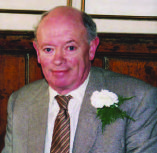
W. E. Balfour
( 1927 - 2007 )
Bill Balfour graduated with a BSc from King’s College London. After PhD studies with Catherine Hebb in Edinburgh, he spent his working life at The Physiological Laboratory, Cambridge, as an Agricultural Research Fellow and, subsequently, on the academic staff. Early collaborative work included studies on acetylcholine synthesis in brain, carrier proteins for thyroxine and triiodothyronine, the role of the carotid body in the regulation of erythropoiesis, adrenal gland secretion of progesterone, and absorption of colostrum in the newborn calf. Later, his main interest was in the regulation of blood volume. Bill was a dedicated teacher and an excellent and caring Director of Studies in King’s College.

A. D. Bangham
( 1922 - 2010 )
Working at Babraham, Alec Bangham made research contributions in many areas including mechanisms of anaesthesia, lung surfactants, haemoglobin polymorphisms, water structure and the evolutionary origin of life. His most significant discovery – that of the liposome – emerged from electron microscopy observations of hydrated lipid films with Bob Horne. Proteoliposomes subsequently became, and remain, a major tool for functional analysis of membrane transport and have also been developed as drug delivery systems.
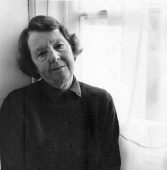
Jean Banister
( 1917 - 2013 )
Jean, a former teaching Fellow of Somerville College, Oxford, died on 15 February, aged 95. She had been a Member of The Society since 1950. Her research largely concentrated on the pulmonary vascular system. Jean is also remembered as a tireless champion of women’s education.
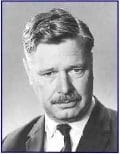
James Alexander Barclay
( 1909 - 1999 )
James (Jimmy) Alexander Barclay, renal physiologist, studied Medicine in Aberdeen, He worked in the Department of Physiology at Birmingham University his entire professional life becoming a Reader and, for a while, acting Head of Department. His research centred on mechanisms of acid secretion by the kidney and, later, on the isolation of sodium-binding polypeptides from erythrocytes and cardiac muscle.
Horace B Barlow
1921-2020
The Society has learnt with great regret of the death of Honorary Member Professor Horace Barlow FRS on 5 July 2020 at the age of 98. A great-grandson of Charles Darwin, he was educated at Cambridge and Harvard before returning to Cambridge in 1946 to work with Edgar Adrian. There are very few areas of sensory and computational neuroscience which Barlow’s influence has not touched, including experimental and theoretical work on visual processing in the retina, the statistics of natural scenes, and the nature of visual codes. He moved to the USA where he became Professor of Physiological Optics and Physiology at UC Berkeley, then returned to Cambridge in 1974 as a Royal Society Research Professor. A Member of the Society from 1952, he served on the Editorial Board of The Journal between 1973 and 1980. The recipient of numerous prestigious prizes, Horace Barlow was elected a Fellow of the Royal Society in 1969 and awarded its Royal Medal in 1993.
David Begley
2023
The Society regrets to hear of the death of David Begley, who passed away on 6 July 2023. David was a long-standing member of The Society. He joined in 1998 and became a retired member from 2015.
He began his career at the University of Oxford, completing his undergraduate in 1973 followed by his PhD in 1977. He went onto become Friedrich-Merz-Stiftungsgast Professor at Goethe University (Frankfurt, Germany) for 1997-1998 and was visiting Academic in Residence at GlaxoSmithKline from 2005-2007. During his years as Senior Lecturer in Physiology at King’s College London, he headed a laboratory within the Institute of Pharmaceutical Sciences investigating the blood-brain barrier and drug delivery to the central nervous system (CNS) with a special emphasis on lysosomal storage diseases.
David’s research contributed to a deeper understanding of blood-brain barrier function. He used both in vitro and in vivo models to study transport across the brain barrier, and was part of the world leading groups in the research area. He was investigating the direct and secondary effects of toxic material that can build up within cells of the CNS barriers, which can occur due to enzyme deficiencies.
Later, he focused his attention on studying mucopolysaccharidoses (a group of metabolic disorders caused by a genetic condition leading to the absence or malfunction of lysosomal enzymes). Using mouse models, David wanted to identify the problems of delivering therapies to the brain to develop new enzyme replacement therapies to treat these brain disorders.
David was a member of the International Brain Barriers Society, where colleagues described him as friendly, supportive, and deeply knowledgeable. His career in the blood-brain barrier and CNS, along with his mentoring and outreach, made a large difference in the lives of many people working within the field.
A couple of his career highlights are serving as Chair and lead organiser of the 2nd ‘Barriers of the CNS’ Gordon Research Conference, held in Tilton, New Hampshire in 2002. A meeting that is now one of the premiere scientific conferences in the field.
In 2007, he became the co-founder with Dr Maurizio Scarpa of the Brains for Brain Foundation. For nearly 15 years, the pair ran highly impactful annual meetings in Frankfurt, Germany. They brought together basic brain barriers scientists, clinicians and patient advocates to unravel new ways to deliver drugs to the brains of lysosomal storage disease (LSD) patients.

Christopher Bell
( 1941 - 2008 )
Chris Bell took zoology at Melbourne University where he was one of Geoffrey Burnstock’s first PhD students. As a National Heart Foundation Overseas Research Fellow, he worked in the UK with Marthe Vogt at Babraham and with John Vane at the Royal College of Surgeons in London, studying the catecholaminergic innervation of peripheral tissues. Awarded the Sandoz Prize in 1972, Chris returned to the Department of Physiology in Melbourne, gaining his DSc (1980) and building an international reputation in vascular physiology. In 1995, he was appointed to the Chair in Physiology in Trinity College Dublin. He created new courses there in exercise physiology and neuroscience. He was editor of several international journals and wrote a number of popular books on physiology, for schoolchildren and others.
Alan Benson
d. 2016
Alan Benson joined the Society in 1961. He specialised in aviation physiology and was Head of the Behavioural Sciences Division at the RAF Institute of Aviation Medicine at Farnborough.

Derek Hugh Bergel
(1932 – 2021)
The Society is saddened to hear of the death of Dr Derek Bergel. He was a revered cardiovascular physiologist and wrote two classic books on cardiac mechanics, including ‘Cardiovascular Fluid Dynamics’ published in 1972.
Bergel qualified in medicine from St Bartholomew’s Medical Centre, London, UK. This is where he carried out his pivotal research on the viscous and elastic behaviour of the walls of arteries and was appointed Lecturer in Physiology from 1957 to 1962.
In 1968, Bergel moved to University of Oxford, UK, where he held the Ann Rork and Rudolph Light Research Fellowship at St Catherine’s College and was appointed Lecturer in Physiology by Professor David Whitteridge, a British physician and physiologist. Bergel was also Tutor in Medicine at St Catherine’s College until 1977.
From 1983, Bergel was Fellow of Merton College at University of Oxford, UK, and became Tutor in Medicine from 1984 until his retirement in 1991.

Robert W. Berliner
( 1915 - 2002 )
Bob Berliner was one of the founding fathers of modern renal physiology. Director of the National Institutes of Health (NIH) Laboratory of Kidney and Electrolyte Metabolism for 12 years, in 1969 he became the first NIH Deputy Director for Science and, in 1973, Dean of the Yale University School of Medicine. Among his numerous honours and awards were the endowment by Yale of the Robert W Berliner Chair of Cardiology and Diagnostic Radiology, and the creation of the Robert W Berliner Lectureship in Renal Physiology.
Michael Berridge
1938 - 2020
The Society much regrets to hear of the death of Member Sir Michael Berridge FMedSci FRS on 12 February 2020 at the age of 82. Born in Southern Rhodesia (now Zimbabwe) he gained a PhD at Cambridge studying nitrogen excretion in insects. After postdoctoral work in the US, he returned to Cambridge in 1969, becoming a Principle Scientific Officer at the AFRC Unit of Insect Physiology and Pharmacology in the Department of Zoology, and eventually Head of the Laboratory of Molecular Signalling at the Babraham Institute from 1994-2004. Berridge is known for his discovery of inositol trisphosphate as an intracellular second messenger which leads to the release of calcium within cells. The author of many highly influential reviews, he gave The Society’s Annual Lecture in 1986. Awarded numerous honours and prizes, including the Lasker Prize in 1989, Michael Berridge was knighted in 1998. Read his obituary in Physiology News here.
Gordon Bisset
d. 2013
The Society is sorry to hear of the death of Gordon Bisset, who was elected a Member in 1964 and was an Editor of The Journal of Physiology from 1966 to 1967.

Professor Sir Colin Blakemore
(1944 – 2022)
The Physiological Society is sad to announce the death of Professor Sir Colin Blakemore. Professor Sir Blakemore was President of The Society from 2001 to 2003 and was a consulting editor for The Journal of Physiology. His loss will be deeply felt by The Society and those that knew and worked with him.
Blakemore was a neuroscientist who contributed to our understanding of vision, and how the brain develops and adapts. He was influential in demonstrating plasticity of the brain (the capacity of brain cells to reorganise themselves in response to the environment). He later studied conditions such as stroke and Huntington’s disease, exploring how the brain’s ability to reorganise itself can help the process of recovery, as other parts of the brain can take over the function of the damaged part.
Alongside his academic career, Blakemore was a well-known communicator. He was passionate about the importance of public engagement, especially on controversial and challenging topics such as the use of animals in research. In 1976, at the age of 32, he was the youngest person to give the BBC Reith Lectures, for which he presented a series of six talks entitled ‘Mechanics of the Mind’.
He held several prominent positions, including head of the Medical Research Council, and was awarded prizes for his achievements from many academies and societies, including the Royal Society, the Swiss Academy of Medical Sciences, the French Académie Nationale de Médecine, the Royal Australian and New Zealand College of Ophthalmologists and the Royal College of Surgeons in Ireland. In 2014, Blackmore received a knighthood in honour of his services to scientific research, policy and outreach.
Read the Royal Society obituary
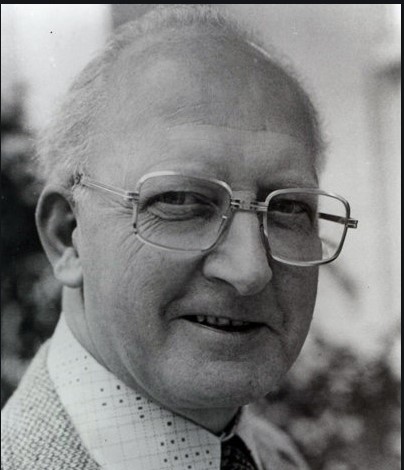
John Bligh
20 January 2020
The Society has heard with regret of the death on 20 January of Member John Bligh at the age of 97. Educated in the Physiology Department at University College London, where he completed his PhD in 1952 under the supervision of Otto Hutter, he took up a position at the Hannah Dairy Research Institute, Ayr, before moving as Principal Scientific Officer to AFRC Babraham in 1957. There he wrote his influential 1973 text “Temperature regulation in mammals and other vertebrates” which developed the reciprocal cross inhibition (RCI) theory of temperature regulation. In that same year, he moved to become Director of the Institute of Arctic Biology in Fairbanks, Alaska. He retired from the Institute in 1985 but continued to publish work, living the rest of his life in Cambridge. Read his obituary in Physiology News here.
Professor Thomas B. Bolton
(1941- 2024)
The Society is sad to hear of the death of Professor Tom Bolton, who passed away on 27 May 2024. Professor Bolton was renowned for his smooth muscle research, which involved the study of ionic events. Through his dedication to this topic, he was the first to describe and characterise membrane depolarising effects, and revealed the voltage-dependence of the ionic mechanism, pointing to the involvement of non-selective cationic channels that are now known as Transient Receptor Potential or TRP channels. These discoveries, as well as a wealth of outstanding contributions to physiology and education, earned him accolades and Fellowship of the prestigious academies; Academy of Medical Sciences and the Academia Europaea.
He built a world-leading smooth muscle research group, called “The Smoothies”. The group specialised in investigating ionic events and associated ion channels of smooth muscle cells, and were at the forefront of research using new technologies, such as single cell patch clamp electrophysiology and laser confocal imaging. They were one of the first to characterise calcium-activated potassium channel and delayed rectifier potassium channel currents in smooth muscle cells.
Professor Bolton’s physiology career started at the University of London, where he obtained a Batchelor of Science degree in physiology in 1964 and a PhD in Pharmacology in 1967. He then went onto study veterinary medicine and worked as a veterinary surgeon at the Royal College of Veterinary Surgeons, before going onto St. George’s Hospital Medical School (now known as St. George’s University of London) where he was the vet responsible for the animal facility.
It was during his years as a research fellow at Brasenose College at the Department of Pharmacology Oxford University, that Professor Bolton became interested in research. Here, the late Edith Bülbring, who was very well-regarded in the field of smooth muscle physiology, inspired his own pursuit in smooth muscle research.
In 1976, Professor Bolton returned to St. George’s, starting out as Senior Lecturer. Within four years he was professor and five years later he became Head of the Department of Pharmacology and Clinical Pharmacology.
Bolton served the community through sitting on grant panels for Wellcome and the British Heart Foundation, and grew his network through his membership with a variety of societies, including The Physiological Society, British Pharmacological Society, Biophysical Society, Save British Science, Biochemical Society, University Federation Animal Welfare and Royal College Veterinary Surgeons.
Frank Bowser-Riley
1945 - 2020
Dr Frank Bowser-Riley unexpectedly passed away in December 2020 at the age of 75. Frank was a long-time-member and supporter of The Physiological Society. Born in Manchester, Frank’s family moved to Cheshire when he was eight. After earning a scholarship, Frank attended Sandbach School where he became an active member of the army Cadets. He later moved to Buxton to be with his mother following the death of his father. In Buxton, he took his first scientific job as a Laboratory Technician in the Devonshire Royal Hospital. He also joined the Manchester Regiment of the Territorial Army and this experience left a profound and lasting impact on him.

Michael William Blackburn Bradbury
( 1930 - 2013 )
Professor of Physiology Kings College London 1977-1995, Emeritus 1995-2013. Mike Bradbury died peacefully on the 9th of February 2013 in Blandford, Dorset aged 82. He became a Member of the Society in 1964 and served on the Editorial Board of The Journal of Physiology from 1981-1988. His many friends and colleagues will miss him greatly.
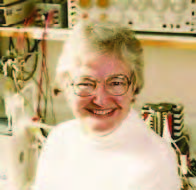
Alison Brading
( 1939 - 2011 )
Alison’s services to The Society were extensive. Alison studied Zoology at The University of Bristol, before working in the Department of Pharmacology in Oxford. Throughout her career she was a familiar and respected personality and made substantial contributions to understanding smooth muscle function.
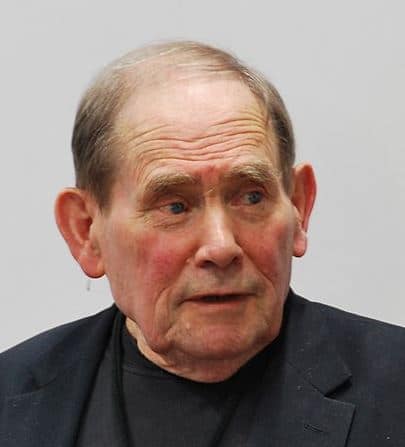
Sydney Brenner
Sydney Brenner (1927 – 2019)
The Society notes with regret the death of Honorary Member Sydney Brenner CH FRS, a Nobel Prize winner in 2002 for the discoveries concerning genetic regulation of organ development and programmed cell death. Born in South Africa and trained initially as medical student, he worked with Francis Crick for over 20 years to establish the basis of the genetic triplet code and its transcription. He also established the nematode worm C. elegans as a novel experimental model organism. Brenner’s discoveries, carried out in Cambridge, UK, led to the first fully mapped genome of a multi-cellular animal, published in 1998. He was responsible for many of the key modern initiatives in molecular biology, including the founding of The European Molecular Biology Laboratory (EMBL) in Heidelberg in 1974. (Photo credit: Sydney Brenner speaking at the Okinawa Institute of Science and Technology, December 2008).
Hubert Britton
d. 2017
The Society notes the death of Member Hubert Britton in October 2017 at the age of 92. With a medical degree and a PhD in chemistry, Hubert joined the Physiology Department at St Mary’s Hospital Medical School, where he remained until retirement. A Member from 1965, he worked on the metabolic role of the placenta and the foetal endocrine system, and developed a method for studying enzyme function by induced transport. A staunch supporter of integrative physiology, he arranged many demonstrations linked to the clinical course he taught.

John Ramsey Bronk
( 1929 - 2007 )
Ramsey Bronk was first Professor of Biochemistry at the University of York. He came as a Rhodes Scholar to Oxford in 1952, studying for his doctorate with Fisher and Parsons, and returned to Washington (1956) to work in the National Institutes of Health. He was subsequently appointed Associate Professor of Zoology at Columbia University, becoming full Professor shortly before coming to York (1966) where he remained until his retirement (1997). There, he was closely involved in establishing the successful biochemistry degree course and the cancer research laboratories in the Biology Department, funded by Yorkshire Cancer Research. He wrote two major successful textbooks, Chemical biology and Human metabolism. His research interests included mitochondria, and thyroid hormones, and he worked extensively on metabolic aspects of chemotherapeutic drug delivery by peptide transport across the small intestine. He was a founding member of, and regular contributor to, the European Intestinal Transport Group and Chairman of the European Editorial Committee of Physiological Reviews, as well as a Distributing Editor for The Journal of Physiology.
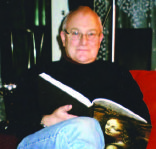
Alan G. Brown
( 1939 - 2006 )
Alan Brown, a medical graduate from the University of Edinburgh, qualified with a BSc in Physiology (1961) and MBChB (1964) and joined the Department of Veterinary Physiology at the Royal (Dick) Veterinary College. Awarded his PhD in 1968, he progressed to a Readership (1976), then full Professorship (1984). He was Head of Department of Preclinical Veterinary Sciences for much of the 1990s. He contributed prominently to our understanding of the diversity of sensory mechanisms in the dorsal horn. His research awards included a Beit Memorial Research Fellowship and MRC Research Fellowships. A Fellow of the Royal Society of Edinburgh (1984) and of the Institute of Biology (1988), he served as a member of the MRC Neurosciences Grants Committee and held editorial positions on The Journal of Physiology, the Quarterly Journal of Experimental Physiology, the Journal of Neurophysiology, Neuroscience and Brain Research/Brain Research Reviews.

Eberhard Buhl
( 1959 - 2003 )
By the time of his appointment in 1999 as Professor of Neurobiology at Leeds, Eberhard Buhl had achieved international renown as an experimental neuroscientist. He pioneered the study of structure in relation to function in the brain, and of in vitro brain rhythms. He attracted major international collaborators and research grants and held important academic and managerial roles in physiology at local and national levels.
Liam Burke
d. 2018
The Society belatedly notes the death of Member Liam (William) Burke at the age of 96. Following a first degree in pharmacy, completed in 1945, he was one of the only two UK PhD students to be supervised by Bernard Katz in the Department of Biophysics at UCL. After publishing work with Bernard Ginsborg on slow muscle fibres, he moved to Australia in 1956 where he subsequently carried out research with Peter O. Bishop recording from the visual system. He became Head of the Department of Physiology in Sydney, retiring as Emeritus in 1987. Much admired for his scientific curiosity and great sense of humour, he last visited UCL in 2016.

Dick Burn-Murdoch
( 1949 - 2000 )
Dick Burn-Murdoch qualified as a dentist in 1974 from Guy’s Hospital and joined the Physiology Department there as a Junior Lecturer. His teaching and research (into tooth eruption mechanisms, leading to a PhD in 1979) continued to the end of his life. He took on a wide range of responsibilities in administration and teaching – the latter, particularly on cardiovascular and respiratory physiology.
Geoffrey Burnstock
1929-2020
The Society is deeply saddened to learn of the death in Melbourne, Australia, of Honorary Member Geoffrey Burnstock FRS FMedSci AC on 2 June, aged 91. Born and educated in London, he started his academic career in Australia, returning to the UK in 1975 to succeed J Z Young as Professor of Anatomy at UCL. He retired formally in 1997 but continued to be actively involved in research programmes there until 2017. Burnstock ‘s research on the autonomic nervous system led him to propose the theory of NANC (non-adrenergic non- cholinergic) neurotransmission, from which he developed the influential concept of purinergic signalling. Burnstock’s work, and that of his many students and co-workers from around the world, ranged widely from basic mechanistic investigations of central and peripheral autonomic control, to a broad range of clinical studies including cardiovascular, urogenital, neurological, renal and obstetric collaborations. Throughout he encouraged industrial collaborations at every level. A Society Member from 1965, Geoffrey Burnstock became an Honorary Member in 2003. Read his obituary in Physiology News here.

Roger Carpenter
d. 2017
Roger Carpenter, Professor of Oculomotor Physiology at Cambridge, died on 27 October 2017, aged 72. His ‘Movements of the Eyes’ was a classic text. His own research, and his influential theoretical model, revealed how saccadic movements of the eyes could be used to study human decision making. His textbook of Neurophysiology has been used by generations of students. In his Cambridge college – Gonville and Caius – he was a much admired teacher: his engaging supervisions were intellectual in the noblest sense and inspired many medical students to combine experimental research with a clinical career.
Christopher Charles Michel
1938 - 2024
The Society is sad to hear of the death of Professor Christopher Charles Michel, who passed away on 19 July 2024. Professor Charles Michel was an active member of The Physiological Society, and served as Meetings Secretary from 1980-1983.
He transformed the study of microcirculation, changing it from a descriptive approach to a quantitative research investigation. Studying the nature of the permeability of blood vessel walls, led to his novel discovery that the surface coating of endothelial cells acted like a molecular sieve. His research and findings have been instrumental in the development of new treatments for shock, and other conditions with increased vascular permeability.
Professor Charles Michel was born in 1938 in Leeds, UK. He won a scholarship at school to study medicine at Queen’s College Oxford, UK, where he soon developed an interest in physiology. After his second year in medicine, he went onto complete a BSc in physiology. During his studies at Oxford, he was awarded a Christopher Welsh Scholarship to pursue his interest in physiology, exploring blood flow and changes in its PH for his PhD. He then later worked on oxygen consumption in muscle in New York. When he returned to Oxford, he was appointed College Fellow of Queen’s College, and was given a lectureship in the Department of Physiology run by Sir George Lindor Brown (1903 –1971).
In 1980, Professor Charles Michel became Head of the Department of Physiology at St Mary’s Hospital Medical School, London (which later merged with Imperial College London to form Imperial College School of Medicine). Here, he worked with his colleagues on developing techniques to investigate the structure of the capillary wall in vessels and vascular permeability. He dedicated his time to developing the understanding of microcirculation, working on theories and models until he retired from Imperial College London in 2000.
Professor Charles Michel was awarded the prestigious Malpighi Prize in 1984 for his contributions to the field of microcirculatory and vascular biology research, and for his devotion to promoting the next generation of scientists.
Alan Chipperfield
d. 2011
Alan Chipperfield died in October 2011 at the age of 73. He was elected a Member in 1978. His interests and expertise were in the areas of membrane transport physiology and he was distinguished for his work on sodium ion fluxes both through the sodium pump and through co-transporters (he was a pioneer in the area of sodium–potassium–chloride co-transport).
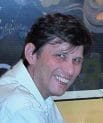
Rob Clarke
( 1956 - 2004 )
Rob Clarke made an important contribution to physiology and to the Physiological Society. A physiology graduate from University of Manchester (1978), he studied for his PhD with Jim Pascoe at University College London. He later joined the Department of Physiology and Environmental Sciences (now Animal Sciences) at the University of Nottingham as lecturer, becoming Senior Lecturer in 1995. Working predominantly on nociception, he published more than 50 papers. He presented over 60 communications at Physiological Society meetings, convened the Somatosensory Physiology Special Interest Group, served as a Committee member and was closely involved in many of the Society’s educational initiatives. These included the Society’s booklet for schools (‘Understanding Life’), a major benchmarking statement for universities starting physiology related degrees, and – with the British Pharmacological Society – vacation courses on in vivo techniques for undergraduates.
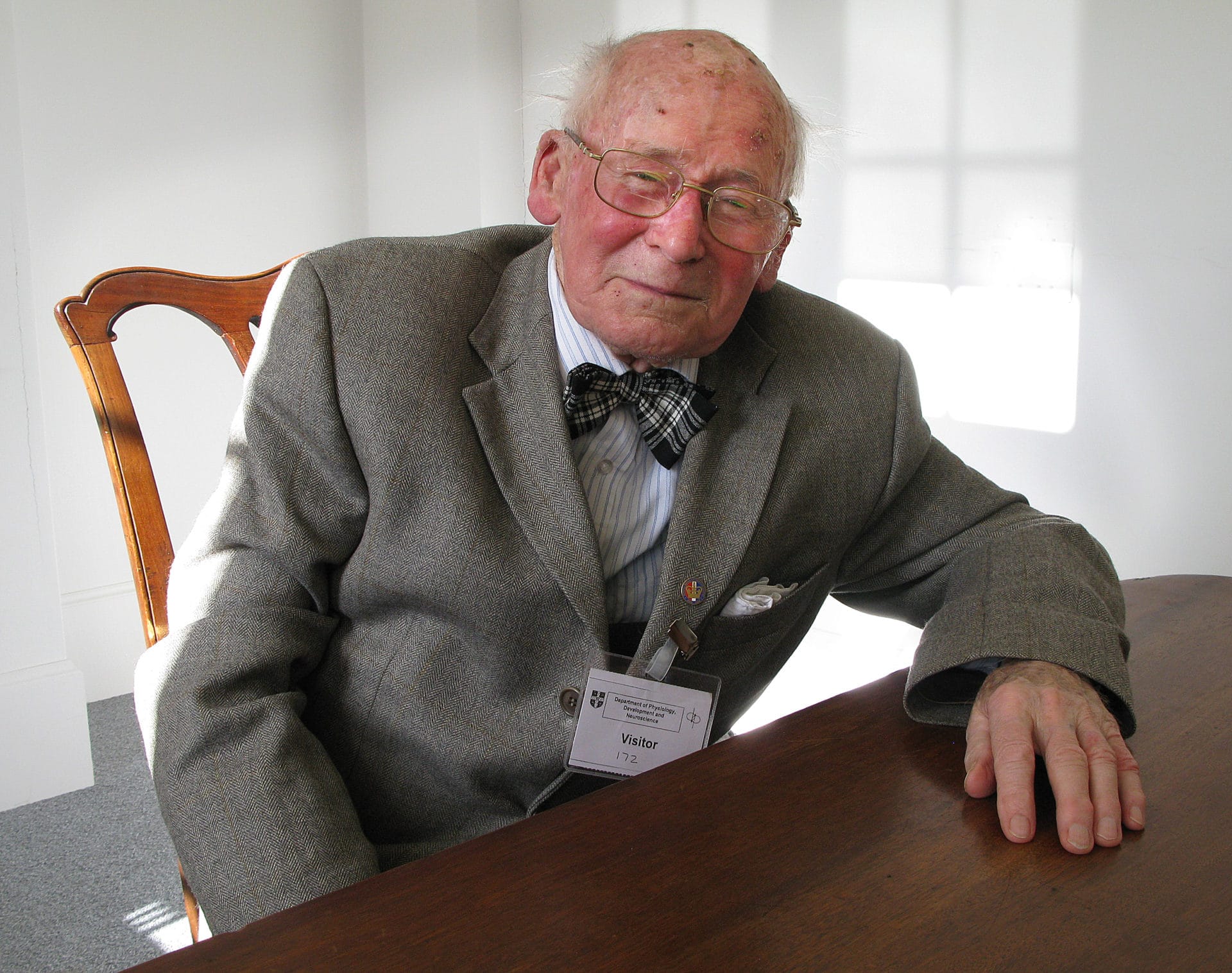
Ronald H. Cook
( 1914 - 2009 )
Ron Cook started work in the Cambridge Physiological Laboratory in 1948 as a Craftsman. He went on to work as Alan Hodgkin’s Instrument Maker, then Technical Officer until his retirement in 1987. With his interest in aquaria, he was able immediately to introduce cuttlefish (Sepia) to Cambridge. They were used by Hodgkin and Richard Keynes for the ion flux measurements that backed up the then new ionic theory of the action potential.
Keith Cooper
d. 2011
Keith Cooper was elected a Member in 1950 and was on the Editorial Board of The Journal of Physiology from 1968 to 1972. Keith was active in the thermoregulatory field, initially at Mill Hill and subsequently in Canada at the University of Calgary.
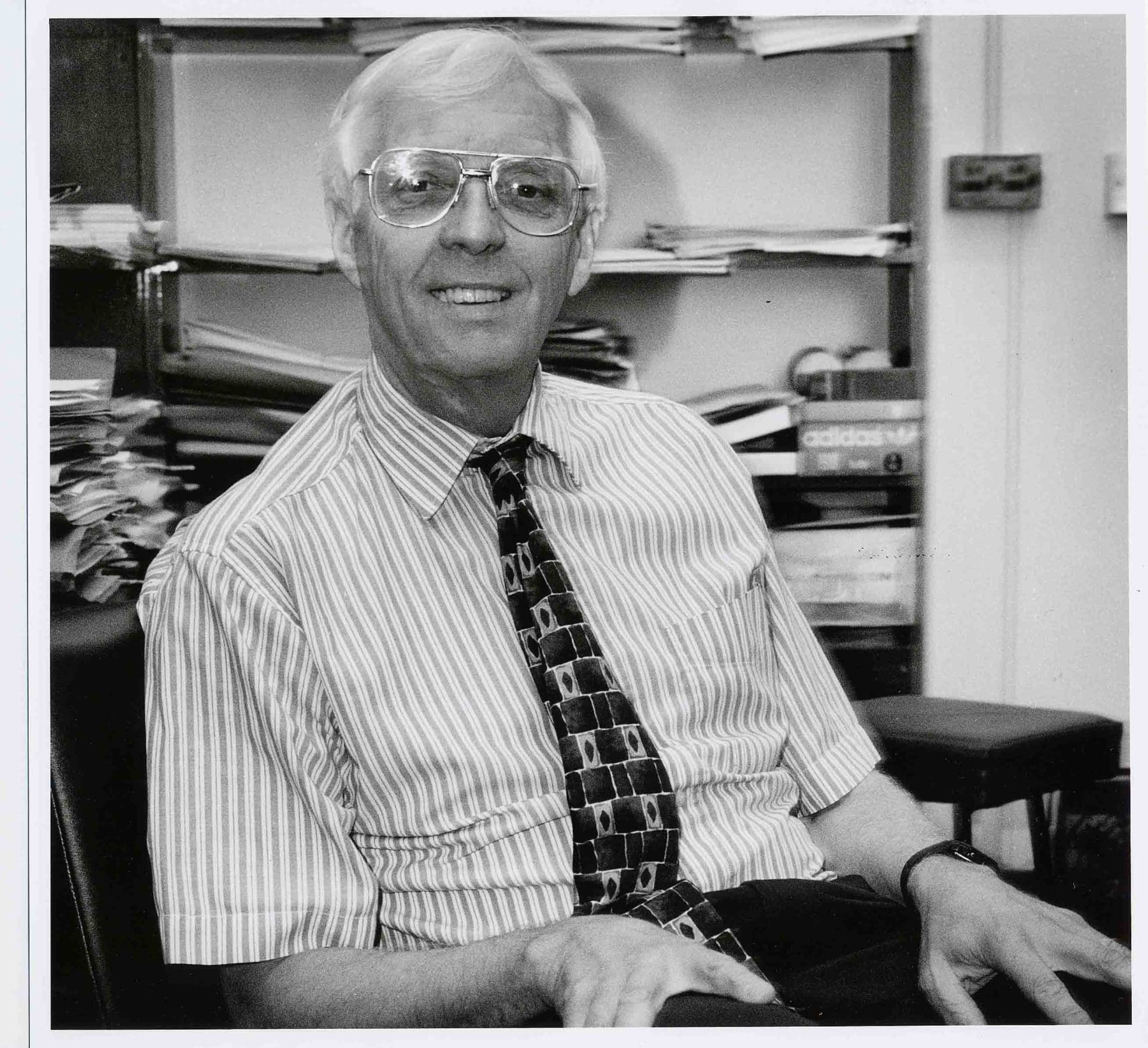
John Coote
d. 2017
The Society is much saddened to hear of the death of Honorary Member John Coote, Bowman Professor of Physiology and Head of Department at the University of Birmingham from 1984 until his retirement. John joined the Society in 1967. He served on Council and as Chair of the editorial board of Experimental Physiology. An outstanding mentor to many students and colleagues, he was a distinguished autonomic neuroscientist with a wide range of interests including being a keen mountaineer and an expert in high altitude physiology. In 2003 he was awarded the Carl Ludwig Distinguished Lectureship of the American Physiological Society.
John Cotes
d. 2018
John Cotes died on 15 April 2018, aged 94. Working at the RAF Institute of Aviation Medicine, Farnborough (1950-2) then the MRC Pneumoconiosis Research Unit (PRU), Llandough (1953) his research concerned the design of an oxygen delivery system for the 1953 British Everest expedition. Oxygen equipment had a daunting reputation following failures on previous expeditions. As sole author of his first paper, he described an improved design and production of the oxygen masks and open circuit oxygen breathing circuits fundamental to the first successful Everest Summit. A member of The Society since 1954, he was well-known for his work on patients with industrial and other lung diseases at the PRU. Later, at the University of Newcastle, he developed systems to evaluate pulmonary function at rest and exercise, particularly lung gas transfer. The 6th Edition of his well-known text book, Lung Function: Physiology, Measurement and Application in Medicine, appeared in 2006.
David R Curtis
d. 2017
David Curtis FRS FAA died in December 2017, aged 90. David is famous for his development and application of the technique of multi-barrelled microelectrophoresis for recording activity from identified central neurones in vivo. Thus he was able to eject a range of compounds into the locality of single neurones. He combined this with activation of synaptic inputs either electrically or by application of other compounds. David, with his chemist colleagues, Jeff Watkins and Graham Johnston, demonstrated the excitatory and inhibitory effects of amino acids on single neurones. They developed the pharmacology of glutamate, GABA and glycine receptors along with novel agonists and antagonists. This provided the core evidence for establishing the role of these amino acids as synaptic transmitters in the mammalian CNS. David became the Howard Florey Professor of Medical Research and Director at the John Curtin School of Medical Research, Australian National University. David was elected to Fellowship of the Australian Academy of Science in 1965, becoming its President in 1986-90, and to Fellowship of the Royal Society in 1974.
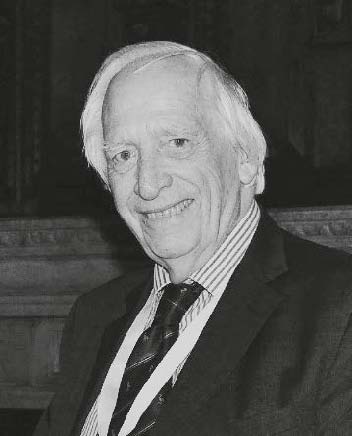
Alan Cuthbert
( 1932 - 2016 )
Professor Alan Cuthbert passed away on 27 August following a short illness. Alan has been part of The Society since 1973. He was Shield Professor of Pharmacology at the University of Cambrige and Master of Fitzwilliam College, Cambridge. His work expanded our knowledge of the physiology and pharmacology of sodium transport in secretory epithelia.

Michael de Burgh Daly
( 1922 - 2002 )
Michel de Burgh Daly was Emeritus Professor of Physiology in the University of London; Distinguished Visitor, Joint Department of Physiology Royal Free Hospital School of Medicine and University College, London (from 1984 until his death); and former Professor of Physiology and Head of Department of Physiology St Bartholomew’s Hospital Medical College, London (1958-84). His experiments on carotid body chemoreceptors and baroreceptors, in and out of the laboratory, have helped us to understand the mechanisms that underlie cardiovascular and respiratory reflexes.
George Darlow
d. 2015
The Physiological Society is saddened to hear of the death of Dr George Darlow, who passed away in June.
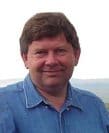
Nicholas J. Davey
( 1957 - 2005 )
Nick Davey graduated from Bedford College London in 1980 with a zoology BSc, studying neural control of breathing for his subsequent PhD at Imperial College. His contributions to the science of spinal cord injury developed from early post-doctoral work on gamma motoneurone activity. Subsequent clinical research at the National Spinal Injuries Centre, Stoke Mandeville Hospital, led to a position there as Honorary Research Physiologist. After moving to the Department of Physiology at Charing Cross and Westminster Medical School (1988), he was promoted to Senior Lecturer in the Division of Neuroscience and Psychological Medicine at Imperial College in 2002. He was widely published and his findings that repetitive magnetic stimuli can have a therapeutic effect in spinal cord injury generated Clinical Initiative funding from the International Spinal Cord Trust. He also sought to engage the public with science, working with partners like the BBC and the Science Museum.
C T M Davies
d. 2017
C.T. Mervyn Davies died on Sunday, 30 April 2017, after a short final illness, aged 83. He was at the forefront of research into human exercise physiology and part of a global network of like-minded scientists from the mid-60’s onwards. He was appointed founding Chair in Sport and Exercise Sciences at the University of Birmingham in 1986 and transformed a respected Physical Education department into a School that would become the world-ranked Sport and Exercise Sciences School it now is.

Joe Davison
( 1942 - 2013 )
The Society is sorry to hear of the death of Joe Davison, who joined The Society in 1974. Joe made important contributions to our understanding of the neural control of the gastrointestinal (GI) tract and its accessory organs. He died on 13 April at the age of 71.

Hugh Davson
( 1909 - 1996 )
Hugh Davson’s work on the cell membrane was a major contribution to an area that is now recognised as fundamental for much of modern physiology and pharmacology. He was also a pioneering investigator of the physiology of eye fluids and the cerebrospinal fluid and a prolific and elegant writer of textbooks and research monographs. After wartime work on visual physiology with the military, he was employed as a member of staff of the Medical Research Council from 1954. Based at UCL for much of his career, he held several visiting professorships after his 1973 retirement in Britain and the US, where he was also awarded numerous prizes and honours. He was elected an honorary member of the Physiology Society in 1985.
Full Offsite Obituary Oral history
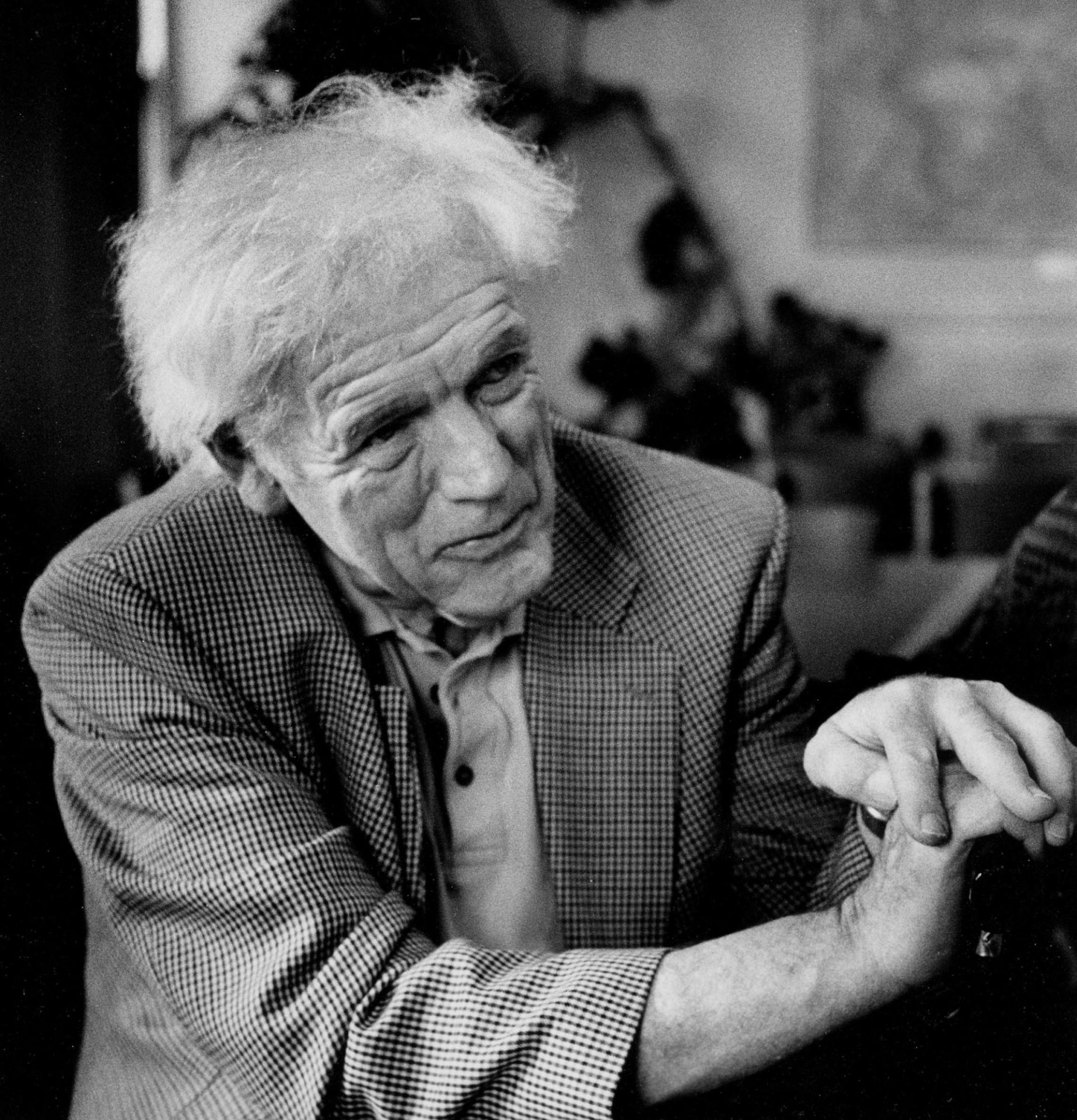
Eric J Denton
( 1923 - 2007 )
Professor Sir Eric Denton was one of the most distinguished marine biologists of the past century. A graduate of St John’s College, Cambridge, Denton’s early career included posts at TRE (the radar research establishment at Malvern), at the biophysics research unit, University College London, and as lecturer in physiology at Aberdeen. In 1956 he began an illustrious career at the Marine Biological Laboratory on Plymouth Hoe. He was first a staff physiologist, then a Royal Society research professor seconded from Bristol until 1974, and director of the laboratory from 1974 to 1987 – attracting visitors such as Sir Alan Hodgkin, Sir Andrew Huxley and Professor Richard Keynes. He continued at the laboratory as a research fellow until 2005. The scope of his work was notable: from buoyancy, to eyes and vision, photophores, camouflage and intraspecific signalling. He received many honours, from the Royal Society’s Royal Medal to the International Prize for Biology from the Japanese Society for the Promotion of Science.
Jack Diamond
d. 2014
The Society was saddened to hear of the death of Jack Diamond, a prominent physiologist who helped establish neuroscience at the Michael G. DeGroote School of Medicine of McMaster University, at the age of 86.
Christopher John Dickinson
(1927 - 2015)
Christopher John Dickinson, Emeritus Professor of Medicine, Barts and The London School of Medicine and Dentistry (2002-15); Chairman, Department of Medicine, St Bartholomew’s Hospital Medical College (1975-92) died on the 30 September 2015 at the age of 88. He was a long time supporter of The Physiology Society, a member since 1966. He was Senior Lecturer at UCH London then Professor of Medicine at St Barts (London). He was interested in the nervous control of essential hypertension and co-authored a popular textbook (Clinical Physiology, E. J. Moran Campbell, C. J. Dickinson, J. H. D. Slater, C. R. W. Edwards, E. K. Sikora 1984 etc). In the late 1960s he developed a suite of computer programs to teach aspects of clinical physiology including respiration (Macpuf), kidney function (Macpee), drug action (Macdope) and integrative aspects of the circulation (Macman). (Despite their name, these programmes were initially written for microcomputers and then rewritten for PCs).
Bernard T. Donovan
( 1927-2020 )
The Society has heard of the death on 26 July 2020 of Member Bernard Donovan. He began his career as a research assistant to Geoffrey Harris, the newly appointed Professor of Physiology at the Institute of Psychiatry at the Maudsley Hospital in London. There he joined the controversy between Geoffrey Harris and Solly Zuckerman on the role of the hypothalamus in the control of the reproductive axis. Results from Bernard’s PhD project, published in Nature in 1954, became a pivotal part of this debate. Bernard remained at the Institute throughout a productive research career, retiring in 1998, and during which he also made notable contributions to academic publishing, as the editor of the Journal of Endocrinology, and as Secretary-General of the Association of Learned and Professional Society Publishers.
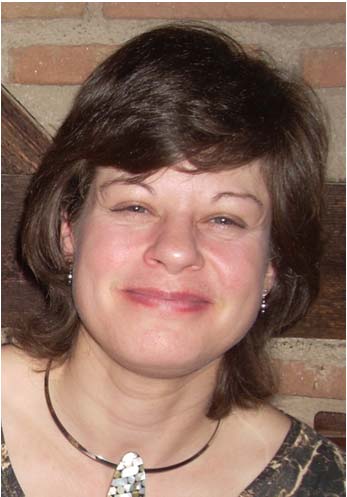
Alison Douglas
( 1961 - 2012 )
Alison worked in the School of Biomedical Sciences in Edinburgh, where she played an important role in teaching and administration, including as Organiser of the Honours Programme in Physiology (2001-2004) and as Chair of the Honours Exam Board in Medical Biology (2007-2011). In 2011 she was elected Chair of the British Society for Neuroendocrinology. She was elected a Member in 1995.
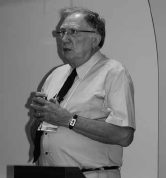
William F Dryden
( 1941 - 2012 )
Bill Dryden, a neuroscientist and true nenaissance man, has died aged 71. Bill grew up in Paisley, just west of Glasgow, Scotland and received a BSc in Pharmacy from the University of Glasgow and a PhD in Pharmacology from the University of Strathclyde. Following postdoctoral studies in Neuroscience at the University of Pennsylvania, Bill returned to Strathclyde as a lecturer. He was appointed to the faculty in the Department of Pharmacology at the University of Alberta in 1976 where he remained until his retirement in 2008. He was acting chair of the Department between 1991 and 1992. Bill was a founding member of the Division of (later Centre for) Neuroscience and served as its director between 1995 and 1999.
His insight, breadth of knowledge, collegiality and sense of humour will be fondly remembered. He was a true renaissance man and mentor for us all. Bill is survived by his wife Angela, three children, Colin, Gillian and Anna and one grandchild.
Helen Duke
d. 2014
The Society is sorry to hear of the death of Helen Duke. She became a Member in 1950 and published in respiratory physiology while at the Royal Free Hospital School of Medicine and the Middlesex Hospital Medical School.

Mark Dunne
(d. 2021)
The Society regrets to hear of the death of Mark Dunne, Professor of Physiological Sciences at the University of Manchester, UK. A degree in biochemistry from The University of Warwick, UK, led to a prolific career in biomedicine, where he focused most of his research on congenital hyperinsulinism, a genetic disorder where individuals produce abnormally high levels of insulin. Thanks to Dunne’s dedication to this field, he provided significant and valuable scientific support to the specialist congenital hyperinsulinism service at the Royal Manchester Children’s Hospital. Alongside his research, Dunne was The Society’s Meetings Secretary.

K A Paul Edman
(d.2021)
The Society is saddened to hear of the death of K A Paul Edman. Edman was based at Lund University, Sweden. He had a prolific research career, spanning over 60 years, focused on understanding the characteristics and performance of muscle fibres.
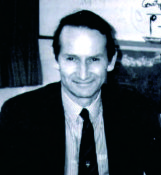
Richard Edwards
( 1925 - 2013 )
Professor Richard HT Edwards was a physiologist and clinician with an international reputation for skeletal muscle research. A medical graduate from Middlesex Hospital Medical School, his interest in muscle developed during work at the Hammersmith Hospital and Royal Postgraduate Medical School and, as a Wellcome Trust Swedish Research Fellow, at the Karolinska Institute in 1970. He published a series of landmark papers in The Journal of Physiology, Clinical Science and The Lancet on muscle during exercise. With Professors David Hill and Victor Dubowitz, he secured a major grant to establish a Neuromuscular Centre at Hammersmith, then taking several of his research team with him when he was appointed Professor of Human Metabolism at University College Hospital (UCH, 1976). The group published important ground-breaking studies in muscle energetics, muscle protein turnover, muscle damage and muscle disorders. Richard became Head of the Department of Medicine at UCH (1982) and subsequently at University of Liverpool (1984), introducing major clinical and educational innovations there and developing an interest in chronic fatigue syndrome. He was subsequently appointed Professor of Research and Development for Health and Social Care at the University of Wales College of Medicine and Head of Research and Development for the NHS in Wales (1996-9)
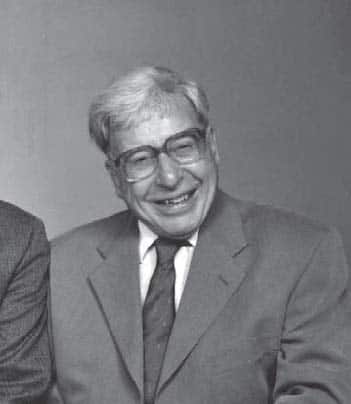
Sir Robert Edwards
( 1939 - 2009 )
Sir Robert was one of the pioneers of in vitro fertilisation, which is celebrated in Sir Richard Gardner’s personal account of Bob as a mentor, collaborator and friend in Physiology News. Bob was awarded Honorary Membership of The Society after receiving the Nobel Prize in Physiology or Medicine in 2010.
Annie B Elliott
( 1931 - 2013 )
The Society is sorry to have to record that Annie B Elliott FRPharmS, PhD, of Sheffield, who was elected a Member in 1968, has died at the age of 98. She had worked in the Department of Biology in Nanyang University, Singapore.
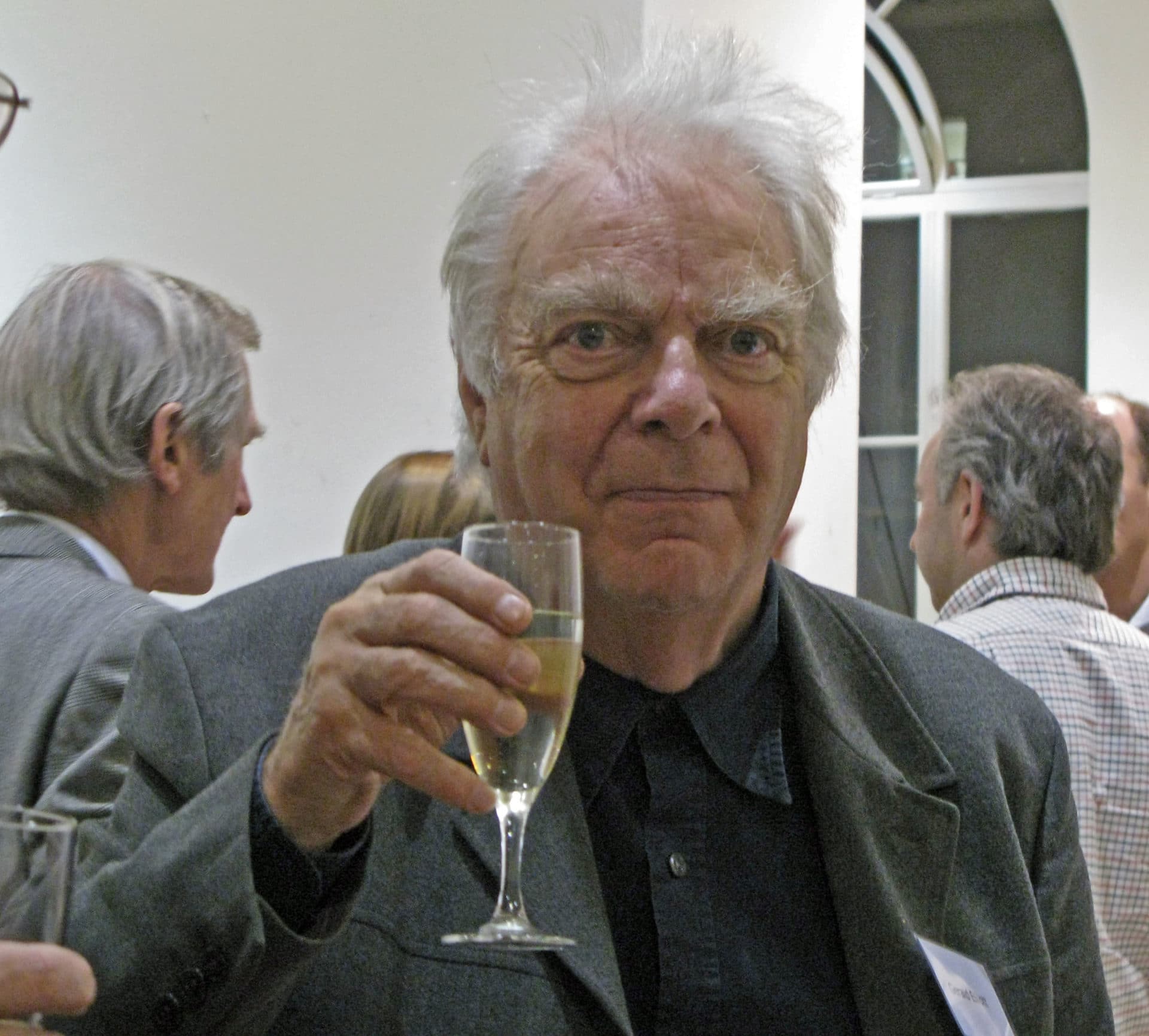
Gerald Elliott
d. 2013
Gerald Elliot, founding Professor of Biophysics at the Open University and a Society Member of many years standing, has died in Oxford, aged 82. He gave his first presentation to a Physiological Society meeting in 1959, and his last in Dublin at the 2009 Summer meeting.

Jeanette Erdmann
(1965-2023)
The Society is saddened to hear of the sudden passing of Prof. Dr. rer. nat. Jeanette Erdmann. Jeanette was a cardiogeneticist, who completed her doctorate at the University of Cologne. At the time of her death, she was DZHK Professor and Director of the Institute for Cardiogenetics at the University of Lübeck, where her team aimed to gain a better understanding of the genetic causes of cardiovascular disease, using bioinformatical and genetic epidemiological methods in cell and animal models. In addition to this, Jeanette established a research group at the Institute to develop therapeutic strategies for COL6-CMD, a rare neuromuscular disease with which she had been diagnosed. Jeanette had acted as a Senior Editor for The Journal of Physiology since 2022, and will be missed by all those who worked with her.

John Ernsting
( 1928 - 2009 )
Air Vice-Marshall Professor John Ernsting’s work on aviation physiology and medicine had a profound and lasting influence on the design of crew support apparatus worldwide. Having qualified in Physiology and Medicine at Guy’s Hospital Medical School (1952), he was commissioned into the Medical Branch of the RAF. He subsequently led teams studying high altitude physiology, becoming deputy director of research, and then Commandant (1988-1992), at the RAF Institute of Aviation Medicine (IAM) at Farnborough. His work influenced international agreements on cabin pressures in modern airliners. On his retirement from the RAF, he came back to King’s as a visiting Professor where he was closely involved in educational innovations relating to aviation medicine and space physiology. He was appointed OBE in 1959, CB in 1992, and was a Queen’s honorary surgeon from 1989 to 1993. He was a past-president of the International Academy of Aviation and Space Medicine, and received the Louis Bauer Award from the Aerospace Medical Association in 2002.
Notices of death 2025
Professor Evelyne Sernagor (March 2025)
Notices of death 2024
Brian Harvey (December 2024)
Roger Thomas (December 2024)
Christopher Charles Michel (July 2024)
Thomas Bolton (May 2024)
Robert Martin (March 2024)
Sheila Jennett (March 2024)
Tom Sears (February 2024)
Notices of death 2023
Robert Henderson (December 2023)
David Brown (October 2023)
Ronald Whittam (August 2023)
Cecil Kidd (July 2023)
David Begley (July 2023)
John G Nicholls (July 2023)
Jeanette Erdmann (July 2023)
Andrew Packard (June 2023)
KW Ranatunga (May 2023)
Gavin Pinniger (April 2023)
Ann Margaret Alderson (April 2023)
Ann Silver (March 2023)
Roger Ramsbottom (February 2023)
Kenneth Page (January 2023)
Notices of death 2022
Philippe Ascher (October 2022)
Tony Macknight (July 2022)
Ian Glynn (July 2022)
Sir Colin Blakemore (June 2022)
Sheila Gardiner(March 2022)
Richard Hellon (February 2022)
Harald Reuter (February 2022)
Kevin Tipton (January 2022)
Anthony Ridge (January 2022)
Notices of death 2021
Malcolm Roberts (December 2021)
Piers C.G. Nye (December 2021)
Derek Bergel (December 2021)
Mark Dunne (December 2021)
K A Paul Edman (December 2021)
Hisako Ikeda-Wolstencroft (December 2021)
David Ogden (December 2021)
Lars Ole Simonsen (November 2021)
John Morrison (September 2021)
Jere Mitchell (July 2021)
Frederick Noel Fastier (July 2021)
Edward Carmeliet (April 2021)
Notices of death 2020
Frank-Bowser Riley (December 2020)
Otto Hutter (November 2020)
Jan Lännergren (October 2020)
Leslie Iversen (July 2020)
Bernard T. Donovan (July 2020)
Edward M Winter (July 2020)
Horace B Barlow (July 2020)
Ronan O’Regan (July 2020)
Henry Michael Snow (June 2020).
Geoffrey Burnstock (June 2020)
Alan Williams (May 2020)
Gerhard Giebisch (April 2020)
Nicholas Standen (April 2020)
Peter B C Matthews (March 2020)
Michael Berridge (February 2020)
John Bligh (January 2020)
David A Johns (January 2020)
Notices of death 2019
Paul M Vanhoutte (August 2019)
Thomas Copland Muir (August 2019)
Sir Stanley Peart (March 2019)
To notify us of the death of a Member please email membership@physoc.org.
